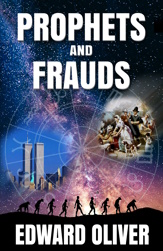Many Old French words can be found by simply looking them up in any modern French dictionary. This glossary lists those words that are no longer a part of the modern French language. New words will be added just as soon as they become available.
OLD FRENCH DICTIONARY
La - (O.F. n. m.) the, a, an
Lac - (F. n.) lake
Laisses - (O.F. p.) let loose, abandoned, left, captive
Lampe - (F. n.) oil lamp
Langue - (O.F. n.f.) language, speech, tongue
Larme - (O.F. n.) a tear
Lasache - (O.F. n.) dastardly, low bred
Lascher - (O.F. v.) lash, beat, unleash, attack, pound, fire upon
Lasche - (O.F. a.) loose, slack, lowly, cowardly, treacherous
Lasses - (O.F. a.) lazy
Laude - (O.F. n.) praise
Le - (O.F. p. m.) the, a
Legent - (O.F. v.) read
Legier - (O.F. a.) swiftly, quickly
Legis - (O.F. n.) law given
Leman - (O.F. n.) lac Leman (lake Geneva)
Les - (O.F. p. plur.) the, those, those people
Lettres - (O.F. n. plur.) letters, communications, epistles, decrees
Leur - (O.F. n.) their, them, they, those etc..
Liberte - (O.F. n.) liberty
Lict - (O.F. n.) seat, place, bed, a military base or encampment
Liee - (O.F. p.) fastened, tied, bound
Lieu/Lieux - (O.F. n.) place, bloodline, position, authority
Liturgie - (O.F. n.) Liturgy
Livree - (O.F. p.) given up, delivered
Loi - (O.F. n.) law, rule
Loing - (O.F. p.) far, long, much
Long - (O.F. p.) long, along
Longtemps - (O.F. p.) for a long time, continuously
Lors - (O.F. a.) then
Louange - (O.F. n.) praise
Loup - (F. n.) wolf
Loy - (O.F. n.) law, rule
Lubrique - (O.F. a.) loose, lascivious
Lui/Luy - (O.F. n.) the same
Luna/Lune - (O.F. n.) moon
Lunaire - (O.F. n.) Crescent Moon, Middle East
Lusitains - (L. n. plur.) Portuguese
Lux/Luxe - (O.F. n.) (fig.) the prize, the brass ring, the light
Luy - (O.F. n.) the same
Lyon - (O.F. n.) lion, or the city of Lyon
Lys/Lis - (O.F. n.) Lilly, Fleur de Lis
OLD FRENCH DICTIONARY
The Old French language included many words from Latin and Greek word roots and also regional dialects such as Provencal and and Catalan. You can also check under the classical "class." and figurative "fig." listings in larger modern French dictionaries. Old French can also differ from modern French, since words like "fleuve," which now means "river," also meant "route" or "course," in Old France because rivers were often used as the safest "route" or "course" when travelling between major cities, since roads were poorly maintained, and robbers often waited along these routes. Please keep in mind that many figures of speech such as the "oil and the wine," which does not seem to make much sense today, in those days meant the "good things."
If you would like to learn more about the writings of the classical prophets and how their prophecies may relate to events in your future, please click on the secure link below to order your book by Edward Oliver.
Copyright 2004-2026 Edward Oliver
USE THIS SECURE AMAZON LINK
TO ORDER A BOOK OR EBOOK:
